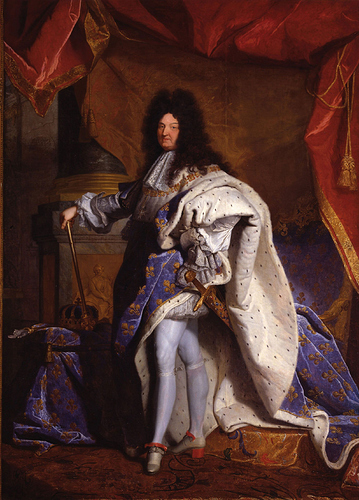Butch women and femme men are categories that exist, and each can be either trans or cis. I know a trans woman who presents extremely butch, but is still naturally perceived as a butch woman (rather than a man) because of hormones and details of her gender expression. Gender identity has nothing to do with liking traditionally masculine or feminine activities or presentation. I like how Serano’s term “subconscious sex” better illuminates how some trans people experience what is often called “gender identity” in a very visceral, physical way, rather than anything related to culture.
(I mean, I literally left society altogether for half a year, and still identified as female, despite my best efforts.)
Anyway, there’s a few problems with our practice of defining male and female as the genitals a doctor observed a person to have when they were born, which is how this is typically done in practice – almost no one takes a karyotype to determine what chromosomes you have, or does a detailed analysis to determine if you’ll actually produce gametes at some point in the future. If you think about it, it’s just weird to assign so much significance to a baby’s genitals, even decades after the fact. But the main issue is that these categories are not treated as private medical information, but are culturally assumed to be public knowledge.
If male/female categorization really was culturally considered private & medical, as most other human biological (mis)functions are, needed to be shared only with your doctor, your partner, and a few friends, it would be totally fine to do so! But that’s not the way it is. How would you feel if you had to reveal an embarrassing medical condition every time you filled out a form, every time you bought alcohol, every time you checked into a hotel or rented a car, and so on? Why do I need to be continually reminded that baby enceladus had a penis? Why do so many random strangers need to know this?
There is way too much cultural inertia around these categories as being public for them to function as purely biological, non-cultural definitions. Even in these somewhat more enlightened times, forms still ask for “male, female, or other,” not, “man, woman, or other,” regardless of medical significance. And frankly, most cis people don’t understand how trans bodies medically function; my body, running on estrogen, reacts in a typically female range to drugs, diet, exercise, and so on – everything that isn’t directly related to having a uterus – so even in a medical context, categorizing my body as “female” will usually result in more accurate diagnosis and prescription than “male.”
The construction of phrases “trans female,” “cis male,” etc work a lot better to separate the assumed culturally public part (male/female) from the potentially private part (cis/trans). Trans people for a long time have also used the acronyms “AMAB” and “AFAB” – assigned male/female at birth – to categorize what you’re trying to call male & female here, but these terms more accurately reflect that this is just a beginning of a story.
I’m a trans woman, I’m not, like, in denial of the reality of that situation. I realize I’m not a cis woman and differ in certain ways in body and life experiences. I don’t even completely hide this information in my day-to-day life. But there are too many connotations and assumptions around the word “male” for that to really work. Calling me male entails all manner of wrong assumptions about both my social identity and biological body. Calling me male saddles me with the expectation that I have to frequently reveal this information to people who might be surprised or disturbed by the fact. Calling me male only confuses the purpose of identifying me or providing me medical care. I don’t think it’s possible to separate these words from millennia of cultural connotations. You could call me AMAB or invent some other new term to describe what you want about my biology, but you better be really careful that the word is actually accurate rather than relying on any culturally-informed assumptions. In practice that is hard to do.
Anyway, and I apologize, but I may need to mute this thread, not because I’m afraid of these conversations, but I have to have them all the time IRL and also having them in online spaces I frequent is draining, both emotionally, and in terms of time. It’s like an open sore I just have to pick at. I really should develop a web site explaining my gender experience/perspective so I can just, link there, instead of having to churn through this all the time. This isn’t like, a neutral academic discussion for me.
